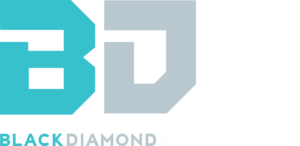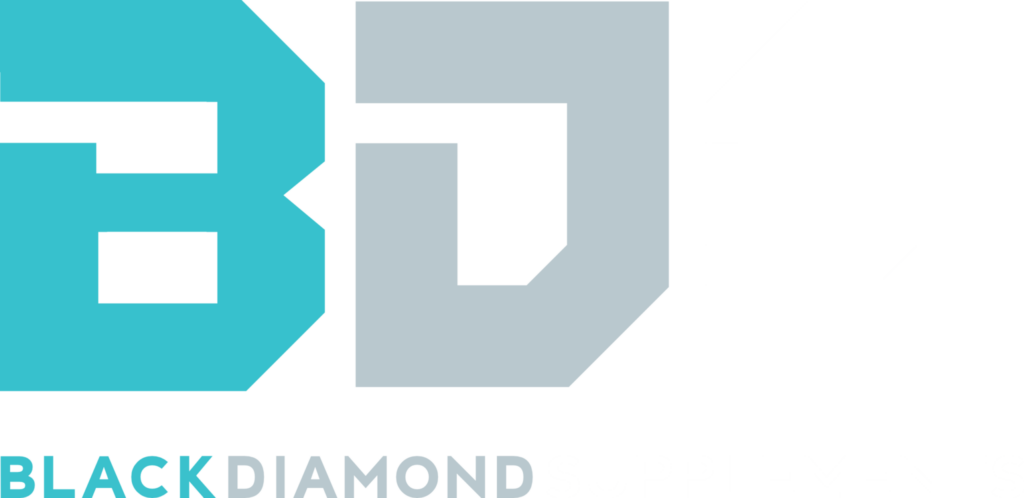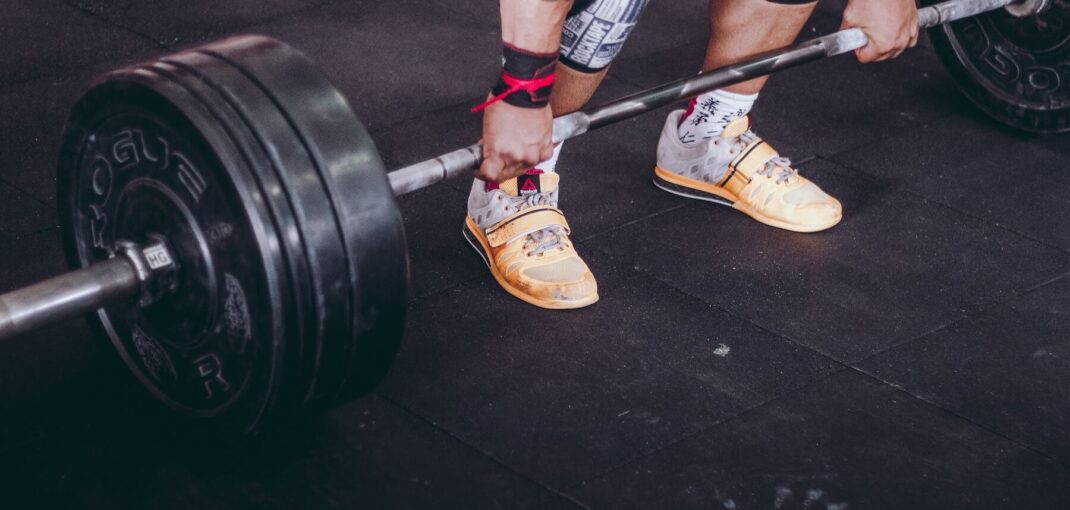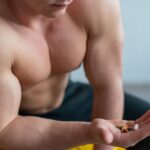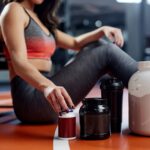If you’ve been looking into prohormones and are thinking about giving them a try to see how they can enhance your natural results in the gym, it’s important that you also have the best prohormone diet to go along with this.
It’s vital that you always remember one simple fact: While workouts are important, your diet can make or break your results.
It makes no difference if you’re using prohormone bodybuilding supplements or not, you still need to be on top of your nutrition. Look at it this way: If you were attempting to build a house, would you get anywhere without the building materials to do so? Certainly not! You not only need concrete and wood, but also the manpower to assemble the house. That’s what food provides to you. Proteins, carbs, and fats are integral to the development of lean muscle mass tissue.
By getting your best prohormone diet in line, you can ensure you are giving your body a head start to achieving the best muscle building results it’s ever seen.
So what’s required when on a prohormone diet? Here are the things to consider.
Calories – And Lots Of Them
If there’s one thing you don’t want to do, it’s cut back on calories right now. Unless you’re using prohormones for cutting, in which case you do want your calories low, now is the time to eat up. The more calories you supply your body with, the better the chances are that you build muscle mass.
Now, there is, of course, a limit. If you eat too many calories, no matter what prohormone supplements you’re on, you’re going to notice fat gain. Most men will do the best eating around 500-750 calories above maintenance level while females will do better eating around 350-500 calories above maintenance level. This is because a woman’s capacity to build muscle mass is simply lower than a man’s, therefore it makes no sense for her to fuel up with as many calories, as the excess calories would simply go to fat storage.
If you don’t already know your maintenance calorie requirements, you’ll want to figure that out. You can use a number of online calculators, which typically use the Harris-Benedict equation or you can use a simple estimate (which is generally very accurate) and multiply your current body weight by 13-15 calories depending on how active you are. This gives you about how many calories you need to just maintain your body weight. You would then add your surplus calories to these base calories.
Eat that level for a few weeks and see how it goes. If you are gaining at your desired rate, you’ve found your ideal calorie intake for now. If you aren’t, bump it up another 10% until you are.
Keep in mind that as you build more muscle and gain weight, your target calorie needs may go up so revisit your calculation from time to time to ensure you’re eating enough.
Protein
Protein is next up on the list to consider. A lot of people think that you need to be eating a lot of protein to build more muscle. This actually isn’t the case. The fact is, when in a calorie surplus like you will be on the best prohormone diet, you actually need less protein than you would while on a fat loss diet. This is because there is no risk that protein will be used as an energy source (since carbs and fats are at an abundance), therefore you only need as much protein as required to build that muscle.
For most people, one gram per pound will provide plenty. Beyond that, protein just becomes an expensive fuel source. You’ll see better results by devoting those calories to carbs or fats instead.
Carbs
This brings us to carbohydrates. You’ll need to ensure your carbohydrate intake is optimized for the best prohormone diet. Carbs are the preferred source of energy during strength training and you’ll be doing a lot of that in the weeks ahead.
You should be eating no less than 150 grams of carbs per day on days you exercise. Most people will easily be up at the 200-300 grams or more level.
Try and focus larger doses of carbohydrates immediately before and after exercise since this is when your muscles will need them the most.
Fats
Now is not the time to shun fats either. Dietary fat and prohormone supplements actually go hand in hand. Prohormones are going to aim to boost testosterone levels in the body and dietary fat can do the same. In fact, research shows that men who have very low fat, high fiber diets actually notice a drop in testosterone compared to men who are using a lower fiber, higher fat diet1.
While you don’t want to overdo fats at the expense of carbohydrates, you should be eating at least 0.35 grams per pound of body weight, taking that number as high as 0.5 grams. Unless you are a true hardgainer, you likely don’t need to go higher than this.
And while you’re choosing your dietary fats, make sure to take in some saturated fat. Saturated fat is most closely connected to testosterone production in the body, so it’s unwise to avoid it completely. In addition, also focus on getting enough omega-3 fatty acids as these will help boost insulin sensitivity2, which helps to ensure those carbohydrates you eat are helping you build lean muscle mass rather than gaining body fat.
A Word On Food Choices
Finally, when creating your best prohormone diet, also do consider the food choices you’re making. While it’s great to get your proteins, carbs, and fats lined up properly, if you aren’t eating nutrient dense foods, you’ll be missing out on the micronutrients (vitamins and minerals) that support general health and performance.
For example, if you fall deficient in zinc or vitamin D, this can negatively impact your testosterone levels as well. Since you’re already using prohormones to help boost your testosterone levels, you would be wise to do whatever else you can to support that process.
Fall short in iron and you may find you fatigue faster during your workouts and likewise, if you become deficient in potassium or magnesium, you may not produce the strength output you otherwise could.
Food quality matters. Choose foods that are as natural and unprocessed as possible. Think lean proteins, hearty grains, fruits and vegetables, oils, nuts, and seeds. It may be tempting to allow yourself leeway to eat whatever you want as your calorie intake is so high, but it’s something you will regret over the long term when you notice the impact on your results.
So keep these tips in mind as you form your best prohormone diet. When designed properly, the right diet will completely transform the results you see.
Now that you have your best prohormone diet in hand you are ready to get started on your cycle. Prohormone for sale.
References:
- Dorgan, Joanne F., et al. “Effects of dietary fat and fiber on plasma and urine androgens and estrogens in men: a controlled feeding study.” The American journal of clinical nutrition 64.6 (1996): 850-855
- Popp-Snijders, C., J. A. Schouten, and R. J. Heine. “Dietary supplementation of omega-3 polyunsaturated fatty acids improves insulin sensitivity in non-insulin-dependent diabetes.” Diabetes Research (Edinburgh, Scotland) 4.3 (1987): 141-147
